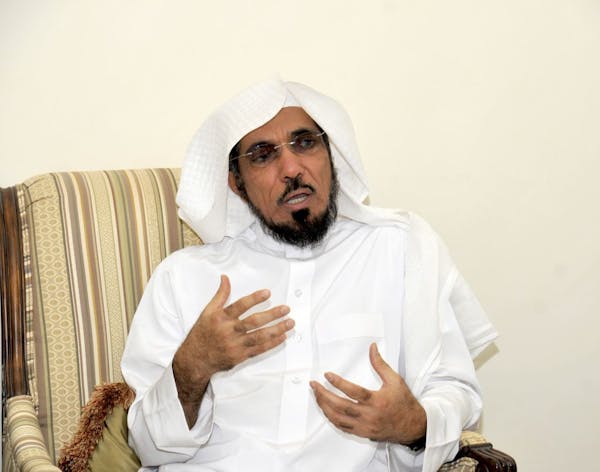On Good Friday, four French journalists who had been bound and blindfolded were found by Turkish soldiers on the Turkey-Syria border. They were held in cruel conditions in Syria for 10 months, allegedly by the Islamic State of Iraq and Syria (ISIS), a jihadist group that's just one of the factions trying to topple Syrian President Bashar Assad's repressive regime. Journalist Didier Francois described the detention as "rough … and sometimes violent," but added that he never lost hope.
For most, however, hope — like nearly every other human necessity — is in short supply in Syria.
More than 150,000 people have been killed and 9.3 million have sought refuge within Syria or in neighboring nations since the vicious civil war (or revolution, to others) began three years ago. Among those dead or missing are journalists who are targeted by both sides.
Last year the Committee to Protect Journalists said Syria was the world's most dangerous place for journalists, and last week CPJ ranked Syria fifth on its "Global Impunity Index" of countries where journalists are murdered and the killers go free.
The Syrian spiral began in 2011 as peaceful protests. But like many nations affected by the Islamic awakening — the topic of this month's Minnesota International Center "Great Decisions" discussion — peaceful protests devolved into violence.
In March, a group of Syrian journalists were in Minneapolis on a trip sponsored by the State Department's International Visitor Leadership Program. Most work for Orient News TV, a Dubai-based network that reports on Syria. (Orient closed its Damascus bureau after an Assad cousin demanded 80 percent control, the journalists said.) Sixty reporters work for the network; 45 are still inside Syria. But like so many news organizations, Orient TV journalists have lost colleagues. Four have been killed and five kidnapped.
The regime and ISIS are equally dangerous, Bureau Chief Muhannad Sayed Ali told me last month. "They treat journalists the same way — like traitors and spies." Ali believes that for foreign correspondents, considered "soft targets" because they lack locals' language and geographic skills, it is even riskier.
But news editor Riad J. Ali (no relation to Muhannad) disagrees. He said that most international journalists often report from safer areas and that if they are kidnapped their governments work diplomatic channels to rescue them just like the French government did.
The threats have led some journalists to leave the network. Those remaining report stealthily. The pressures aren't just security, but sanctity of their journalistic mission, Muhannad Ali said.
"The regime, and many factions of the opposition, tries to sway our editorial line and we refuse. We are not siding with anybody because we shed the light on everybody's mistakes and wrongdoings, and that's why we paid with the lives of our reporters."
"We criticize everybody — ISIS, the regime, the Free Syrian Army," added programs producer Homam Al Bunni.
This also included U.S. news organizations and the Obama administration.
"The American media reflects in great parts the aspiration of the Syrian people," said Editor-in-Chief Mohammad Zaki Azizi. "The problem is it only covers the tip of the iceberg — the 2 percent — and it ignores the 98 percent and many painful humanitarian stories."
The visiting Syrians had humanitarian stories — wrenching ones — to tell. Other foreign correspondents have added to the narrative. And so too has the regime, albeit unwittingly. Its photographer designated to document torture turned over a cache of grim images. France is using the evidence to press the U.N. Security Council to consider war crimes charges.
Most military analysts believe that Assad is ascendant. Western hesitation was met with merciless force from the Syrian military, which is backed by Iran and Hezbollah, and enabled by the U.N. Security Council, where China and Russia run a dictator-protection racket. Sure, Assad was forced to relinquish illegal chemical weapons, but he's allegedly swapped sarin for chlorine, and is using cruder but equally lethal weapons like barrel bombs. Famine lurks, and the government often controls humanitarian assistance — and thus lives.
Some of the journalists allege collaboration — a "weird marriage," said Azizi — between Assad and ISIS in order to isolate the more moderate Free Syrian Army (FSA), which now has to fight both forces. The conflict didn't start out that way, but U.S. indecision was actually quite decisive.
"The lack of support for the FSA is a factor that led to the increased presence of Al-Qaida, and the Syrian people will hold the international community in general and the U.S. in particular responsible for that result," Muhannad Ali said. "What happened is we have the FSA fighting on two fronts against the regime and Al-Qaida, and this is what hindered the revolution."
Even though it now appears some material is getting to the FSA, the vacuum that was filled by jihadists has made Syria a violent vortex that has victimized journalists among the innocent Syrian citizens. For many Syrians, the Islamic awakening has become a nightmare without end. In fact, seeking to cement the obscenity, on Monday Assad announced a June 3 presidential election.
"The chaos continues," concluded Al Bunni. "And it is a great lurking danger for the whole Mideast."
John Rash is a Star Tribune editorial writer and columnist. The Rash Report can be heard at 8:20 a.m. Fridays on WCCO Radio, 830-AM. On Twitter: @rashreport.
Ukraine aid vote is a domestic and geopolitical inflection point

Film festival shows the transformative power of art
NATO's strength in numbers makes U.S. more secure


